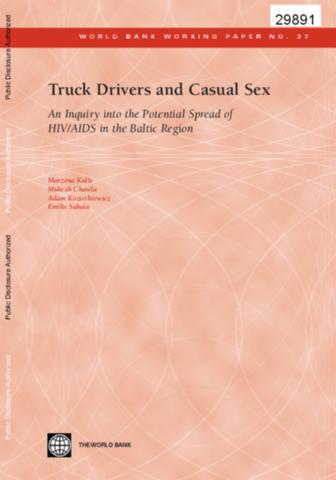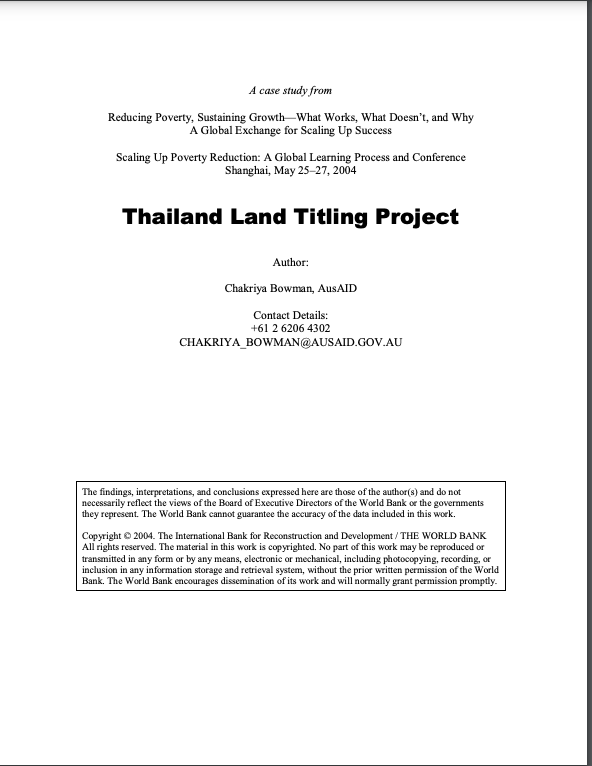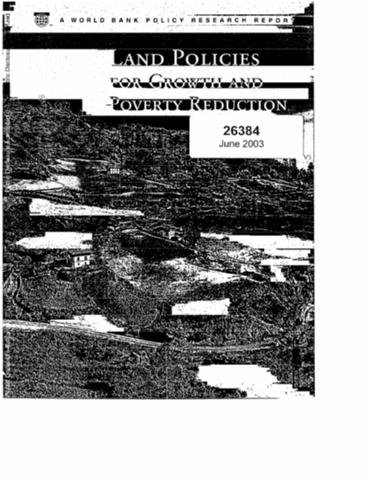The World Bank is a vital source of financial and technical assistance to developing countries around the world. We are not a bank in the ordinary sense but a unique partnership to reduce poverty and support development. The World Bank Group has two ambitious goals: End extreme poverty within a generation and boost shared prosperity.
- To end extreme poverty, the Bank's goal is to decrease the percentage of people living on less than $1.25 a day to no more than 3% by 2030.
- To promote shared prosperity, the goal is to promote income growth of the bottom 40% of the population in each country.
The World Bank Group comprises five institutions managed by their member countries.
The World Bank Group and Land: Working to protect the rights of existing land users and to help secure benefits for smallholder farmers
The World Bank (IBRD and IDA) interacts primarily with governments to increase agricultural productivity, strengthen land tenure policies and improve land governance. More than 90% of the World Bank’s agriculture portfolio focuses on the productivity and access to markets by small holder farmers. Ten percent of our projects focus on the governance of land tenure.
Similarly, investments by the International Finance Corporation (IFC), the World Bank Group’s private sector arm, including those in larger scale enterprises, overwhelmingly support smallholder farmers through improved access to finance, inputs and markets, and as direct suppliers. IFC invests in environmentally and socially sustainable private enterprises in all parts of the value chain (inputs such as irrigation and fertilizers, primary production, processing, transport and storage, traders, and risk management facilities including weather/crop insurance, warehouse financing, etc
For more information, visit the World Bank Group and land and food security (https://www.worldbank.org/en/topic/agriculture/brief/land-and-food-security1
Resources
Displaying 4821 - 4825 of 4907Truck Drivers and Casual Sex : An Inquiry into the Potential Spread of HIV/AIDS in the Baltic Region
This study, perhaps the first of its kind in this region, is based on a study that explores the practice of casual sex among truck drivers, and commercial sex workers in the border areas of the Baltic region at a point of time, and, uses this evidence to extrapolate the potential impact on the spread of HIV/AIDS in these countries. While the threat of an HIV/AIDS epidemic cannot be taken lightly in any country of the Europe and Central Asia region, four countries - Poland, Latvia, Lithuania, and Estonia - stand out as being particularly vulnerable.
Thailand Land Titling Project
The Thailand Land Titling Project is an outstanding success story of inter-agency cooperation and received the World Bank Award for Excellence in 1997. It was designed as a four-phase project over 20 years and will finish in 2004. The project partners the Royal Thai Government, the Bank, and the government of Australia provided funds and personnel, with the Australian Agency for International Development (AusAID) supplying technical assistance and training programs to the Department of Lands (Thailand).
Models for recognising indigenous land rights in Latin America
This paper discusses issues surrounding indigenous land rights, sharing an understanding and information about land tenure and titling within Latin America. The study focuses on examples from the country level, with the aim of influencing policy coherence and legislation.In particular, Chapter four of this document examines the implications of indigenous land tenure for natural resource management, using case studies from Colombia, Costa Rica, Panama and Peru.
Land Policies for Growth and Poverty Reduction
Land policies are of fundamental importance to sustainable growth, good governance, and the well-being of, and the economic opportunities open to, both rural and urban dwellers - particularly the poor. To this end, research on land policy, and analysis of interventions related to the subject, have long been of interest to the Bank's Research Department, and other academic, and civil society institutions.
Land Policies for Growth and Poverty Reduction
Land policies are of fundamental importance to sustainable growth, good governance, and the well-being of, and the economic opportunities open to, both rural and urban dwellers - particularly the poor. To this end, research on land policy, and analysis of interventions related to the subject, have long been of interest to the Bank's Research Department, and other academic, and civil society institutions.









